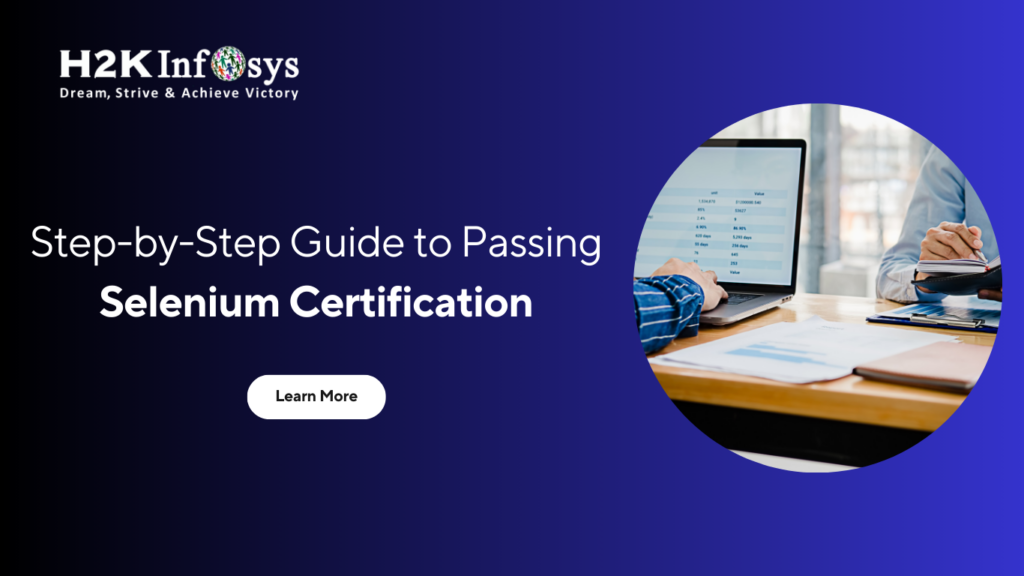A Hadoop Developer specialises in handling and managing Big Data requirements and operations. The job responsibilities are quite similar to those of a Software Developer, with the only variation being that a Hadoop Developer concentrates on Big Data.
As a result, Hadoop Developers must have a thorough understanding of Hadoop tools and concepts, be familiar with all of the Hadoop ecosystem’s components (HDFS, YARN, and MapReduce), and grasp how each component functions independently as well as how they interact inside the Hadoop environment. Hadoop Developers are largely responsible for the design, development, implementation, and management of Big Data applications.
Hadoop Developers work largely with Big Data. They collect data from a variety of sources, clean and transform it, decode it to identify important patterns, analyse it, and save it in a database for later use. They also provide thorough visualisation reports for the cleaned and transformed data using a variety of Business Intelligence (BI) tools to assist other project stakeholders (particularly non-technical members) in understanding the implications of the retrieved data. You can check out our Hadoop training online to learn more about Hadoop Developers.
Responsibilities of a Hadoop Developer
- To set up, configure, and maintain the enterprise Hadoop infrastructure.
- To obtain and collect enormous amounts of data from various platforms.
- Load data from many datasets and pick the optimum file format for a given activity.
- To sanitise data to meet the needs of the company, employ streaming APIs or user-defined routines.
- Create distributed, dependable, and scalable data pipelines for real-time data ingestion and processing.
- To design and deploy column family schemas for Hive and HBase within HDFS.
- To accelerate system analytics, use several HDFS formats such as Parquet, Avro, and so on.
- Understanding the needs for input-output transformations.
- To fine-tune Hadoop applications for better performance.
- To specify Hadoop job flows.
- To analyse and handle Hadoop log files.
- Create Hive tables and assign schemas.
- Manage and deploy HBase clusters.
- To build new Hadoop clusters as needed.
- To troubleshoot and resolve runtime issues in the Hadoop environment.
Skills required to become a Hadoop Developer
Every Hadoop Developer must have these skills:
- In-depth knowledge of the Hadoop ecosystem, including its numerous components and tools such as HBase, Pig, Hive, Sqoop, Flume, and Oozie.
- In-depth understanding of distributed systems.
- The ability to write code that is precise, scalable, and performant.
- Basic understanding of scripting languages such as Java, Python, and Perl.
- Basic understanding of database structure and SQL.
- Excellent understanding of concurrency and multithreading techniques.
- Experience writing Pig Latin scripts and MapReduce jobs.
- Experience in data modelling using OLAP and OLTP.
- Experience working with various data visualisation technologies such as Qlikview and Tableau.
- Experience dealing with ETL tools such as Pentaho, Talend, and Informatica.
- Effective verbal and written communication skills.
- Analytic and problem-solving abilities.
- Business acumen and domain expertise.
How can you become a Hadoop Developer?
It is not necessary to have a background in computer science to become a Hadoop Developer; any relevant specialisation, such as statistics, mathematics, data analytics, and information science, will be beneficial to the job description. After completing your graduate/postgraduate degree, the first step toward becoming a Hadoop Developer is to focus on learning the necessary skills for the profession. Keeping in mind the skills given above, you must:
- Learn Java and SQL.
- Get acquainted with Linux.
- Work with the MapReduce algorithm.
- Learn various database principles.
- Learn the details of the Hadoop ecosystem.
- Learn various Hadoop and HDFS commands.
- Start writing Hadoop code at the beginning level.
- Dive further into Hadoop programming.
- Take on production-grade Hadoop projects.
Aside from these procedures, here are other suggestions to help you become a skilled Hadoop Developer:
- Own the data: Because the position needs you to spend a significant amount of time collecting, cleaning, and transforming data for future analysis and storage, you must delve deeply into the data you are working with. This will allow you to acquire the most valuable insights from the data.
- Prepare to learn new things: You should constantly be willing to learn new concepts and technologies that will help you better your Hadoop projects and applications.
- Focus on learning Data Science skills: Invest your effort in learning about various Data Science approaches such as data mining, transformation, and visualisation, among others. This will allow you to maximise the data’s potential for solving a variety of business difficulties.
Job roles of a Hadoop Developer
Understanding the various career options available for Hadoop engineers might assist in selecting the best fit.
1.Hadoop Software Engineer
A Hadoop software engineer can collaborate with a software development team to work on the company’s current initiatives. This employment role’s major responsibilities include establishing computer code validation and testing strategies, as well as working on software programming. These engineers collaborate closely with customers and other departments to communicate project tenders and status.
2.Hadoop Senior Software Engineer.
They are skilled at working with cutting-edge software solutions that can address corporate challenges. The term “senior” refers to those with big data abilities who use Storm/Hadoop and ML techniques to address business problems. Furthermore, this type of Hadoop developer has a thorough understanding of distributed systems and is adept at using appropriate frameworks to make applications more powerful.
3.Hadoop Software Developer
They are responsible for the programming of Hadoop applications. Some of their responsibilities mimic those of software system developers. They are also skilled at building Hadoop applications and systems.
To do their job well, they must be familiar with the foundations of big data. They also understand data manipulation, storage, revisions, and decoding.
4.Data Engineer.
They optimise both the data and the pipeline-based design. They are also skilled in developing data pipelines and wrangling data in order to design and optimise data systems.
They can indirectly help software engineers, data analysts, information architects, and data scientists. When companies deal with these pros, they can be confident in the quality of their data pipeline design.
A Hadoop developer must be self-sufficient and comfortable meeting the needs of numerous systems and groups. Furthermore, they are skilled at redesigning the company’s data design to accommodate cutting-edge data and products.
Conclusion
To learn more about Hadoop Developers, check out our Hadoop Developer training.






























